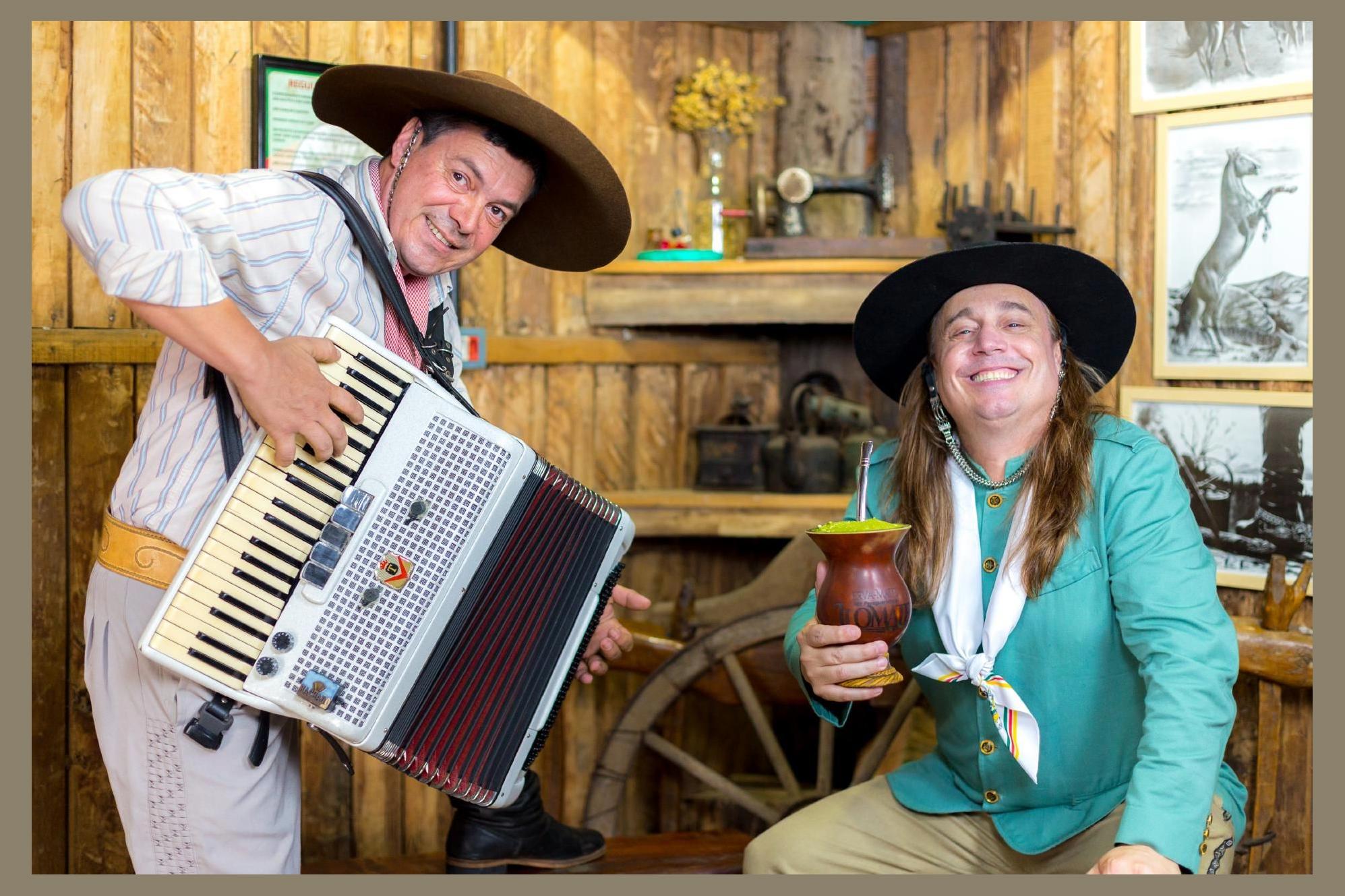 Machado e Marcelo do Tchê
Machado e Marcelo do Tchê
Machado e Marcelo do Tchê: A Musical Legacy of Controversy and Cultural Impact
Origins and Early Career:
Machado e Marcelo do Tchê emerged from the vibrant music scene of Rio Grande do Sul, Brazil, in the late 1970s. The duo, consisting of accordionist Machado (born João Carlos Machado Fagundes) and vocalist Marcelo (born Marcelo dos Santos), quickly gained recognition for their unique blend of traditional gaucho music with contemporary rhythms.
Musical Style and Significance:
Their signature song, "A Gaita do Belizário," became an instant anthem. The song, which celebrated the rural life of southern Brazil, resonated deeply with audiences and helped popularize gaucho music beyond its regional roots. Machado e Marcelo do Tchê's music drew inspiration from the rhythms of the accordion, the lyrics of traditional folk songs, and the harmonies of Brazilian popular music.
Challenges and Controversies:
Despite their commercial success, Machado e Marcelo do Tchê faced significant criticism from some quarters. Purists within the gaucho music community accused them of diluting the genre's authenticity by incorporating modern elements. The duo's flamboyant stage presence and outspoken lyrics also attracted controversy, with some critics labeling them as "showbiz cowboys."
Discography and Members:
Over the course of their career, Machado e Marcelo do Tchê released numerous albums, including:
* A Gaita do Belizário (1980)
* Terra de Meu Céu (1981)
* Alma Gaúcha (1983)
* Força do Destino (1985)
Besides the founding duo, the band's lineup included several talented musicians over the years, such as percussionist Neto Fagundes and guitarist Beto Kaufmann.
Legacy and Cultural Impact:
Machado e Marcelo do Tchê's music continues to be celebrated in Brazil and beyond. Their songs have become beloved classics, and their unique style has inspired generations of musicians. Despite the controversies surrounding their music, the duo's contribution to Brazilian popular culture remains undeniable. Their ability to bridge the gap between tradition and modernity has left a lasting mark on the music of Rio Grande do Sul and beyond.
Origins and Early Career:
Machado e Marcelo do Tchê emerged from the vibrant music scene of Rio Grande do Sul, Brazil, in the late 1970s. The duo, consisting of accordionist Machado (born João Carlos Machado Fagundes) and vocalist Marcelo (born Marcelo dos Santos), quickly gained recognition for their unique blend of traditional gaucho music with contemporary rhythms.
Musical Style and Significance:
Their signature song, "A Gaita do Belizário," became an instant anthem. The song, which celebrated the rural life of southern Brazil, resonated deeply with audiences and helped popularize gaucho music beyond its regional roots. Machado e Marcelo do Tchê's music drew inspiration from the rhythms of the accordion, the lyrics of traditional folk songs, and the harmonies of Brazilian popular music.
Challenges and Controversies:
Despite their commercial success, Machado e Marcelo do Tchê faced significant criticism from some quarters. Purists within the gaucho music community accused them of diluting the genre's authenticity by incorporating modern elements. The duo's flamboyant stage presence and outspoken lyrics also attracted controversy, with some critics labeling them as "showbiz cowboys."
Discography and Members:
Over the course of their career, Machado e Marcelo do Tchê released numerous albums, including:
* A Gaita do Belizário (1980)
* Terra de Meu Céu (1981)
* Alma Gaúcha (1983)
* Força do Destino (1985)
Besides the founding duo, the band's lineup included several talented musicians over the years, such as percussionist Neto Fagundes and guitarist Beto Kaufmann.
Legacy and Cultural Impact:
Machado e Marcelo do Tchê's music continues to be celebrated in Brazil and beyond. Their songs have become beloved classics, and their unique style has inspired generations of musicians. Despite the controversies surrounding their music, the duo's contribution to Brazilian popular culture remains undeniable. Their ability to bridge the gap between tradition and modernity has left a lasting mark on the music of Rio Grande do Sul and beyond.